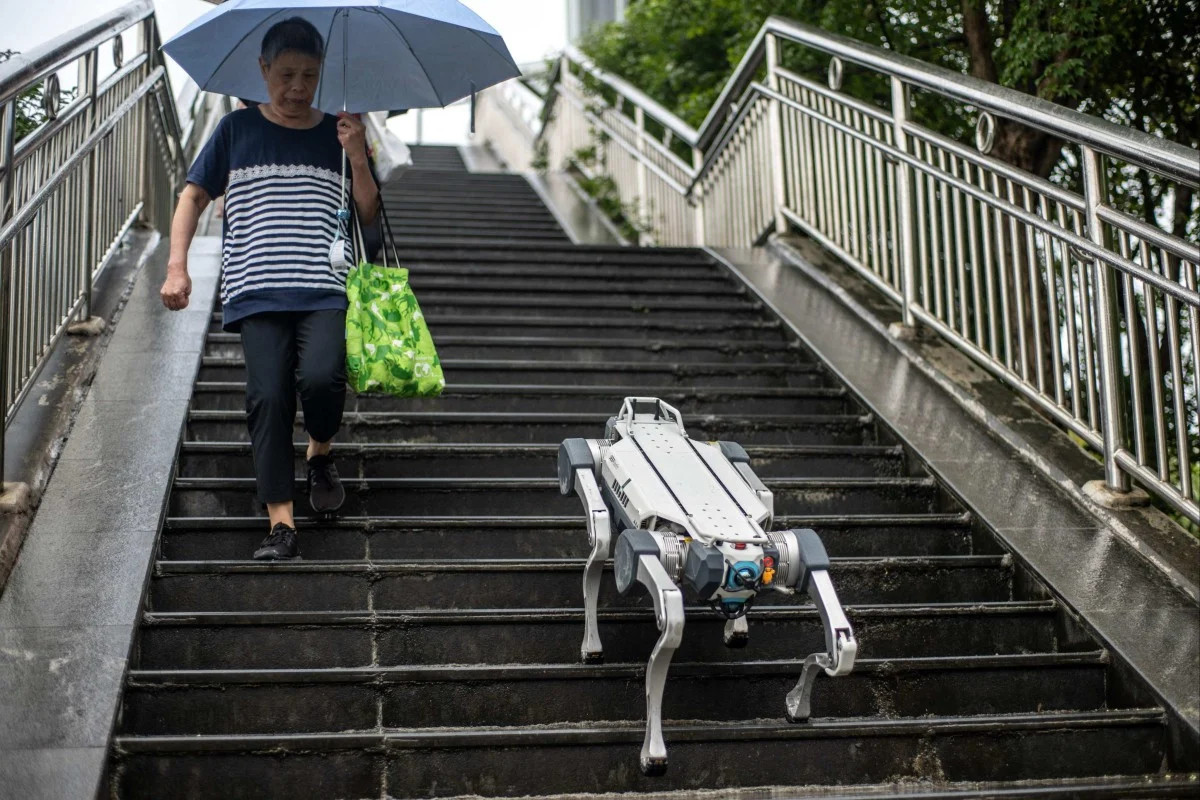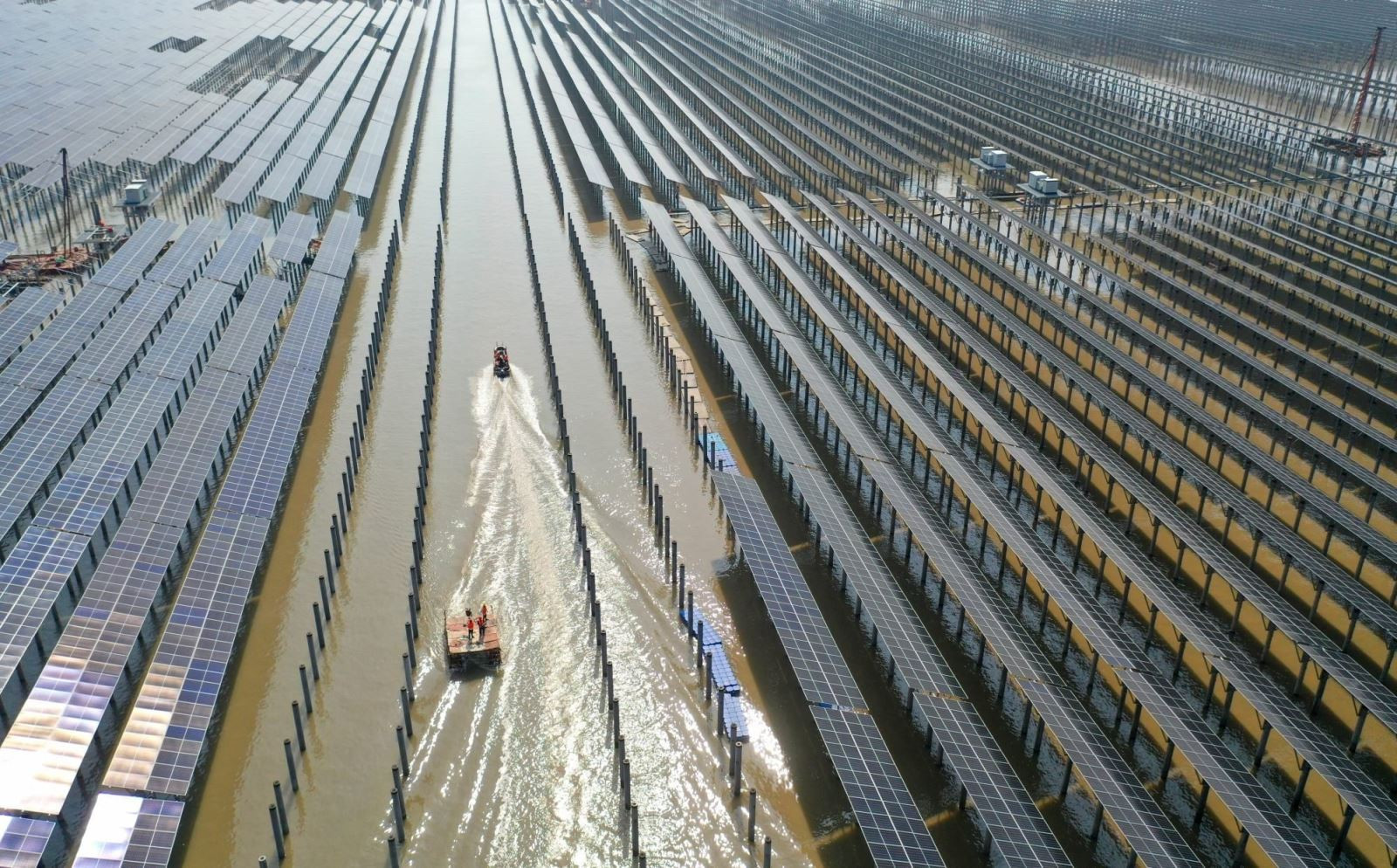By integrating the latest technology into people's daily lives, many cities in China are offering new solutions for sustainable living.

The rapid development of artificial intelligence (AI) appears to be overshadowing economic disparities. Celebrities have reportedly earned up to $5 million for just six hours of work, as tech giant Meta pays them to use their likenesses in its AI assistants.
Such waste raises a troubling question: Does the rise of AI mean that it will exacerbate economic inequality? It is true that AI has the potential to exacerbate social divisions. But governments can use technology for common good, aiming for more equitable and inclusive outcomes.
Cities in China are a prime example of building a smart digital economy, with the aim of benefiting the whole society.
Hangzhou, the capital of Zhejiang Province, China, is known as a technological innovation powerhouse and the hometown of Alibaba founder Jack Ma. It is also the venue for the Asian Games from September 23 to October 8, 2023. The city of 12 million people used the event as an opportunity to showcase the country's cutting-edge technologies, including big data, artificial intelligence and virtual reality, cloud computing, etc.

Accordingly, the means of transportation around the Congress venues are driverless cars that provide both sightseeing tours and free ice cream. The city also equips robot dogs to regularly patrol power supply facilities and automatic mosquito traps.
By integrating the latest technology into people’s daily lives, Hangzhou is providing new solutions for sustainable living. The city has increased the application of AI in social welfare and digital governance, as well as industry standards for data use. Applying big data analytics to commercial operations can also help the government identify growth points and even help with the energy transition.

In particular, the data monitoring system of Hubin Hangzhou shopping mall must be mentioned. Here, 5G and AI technology are applied to evaluate customer flow and analyze to come up with the most effective business recruitment strategy. Thanks to that, electric vehicles (EV) have been identified as the most "effective" business.
As a result, seven electric vehicle brands were invited to set up shop. Last year, the top three brands’ sales exceeded 12 billion yuan ($1.65 billion). To meet the growing electric vehicle market and anticipate demand at the Asian Games, Hangzhou has installed multiple electric vehicle charging stations, including wireless charging stations.
Such infrastructure is essential in the energy transition. In this way, Hubin’s data-driven trading model helps drive electric vehicle adoption and accelerate the achievement of other goals.
As digital transactions increase in Chinese cities, free public charging stations for mobile phones are also popping up. In Hangzhou, people can enjoy the convenience of charging their phones while resting on a roadside bench or waiting for a bus.
Such innovations not only enhance the user experience but also improve business efficiency. The rapid growth of digital transactions in China over the past five years is estimated to have reduced paper waste and carbon emissions by more than 1.8 million tons, contributing to a greener economy.
Hangzhou is also using AI to upgrade its public infrastructure. Based on real-time AI analysis of traffic patterns and commuter needs and activities, the city has launched a “green bus” service in Dingqiao, the city’s most populous district. These electric buses avoid fixed routes and rely on AI to adjust their routes accordingly. So far, the renewable energy-powered service has helped ease traffic and improve the urban landscape.
Parking lots in Hangzhou are also making the experience better with automated toll collection. Through sensors, AI can recognize license plates and link to service providers to pay drivers. This has cut down on the time it takes to get in and out of parking lots, a source of frustration in densely populated cities.
Information boards around the city also feature LED screens powered by AI and global positioning systems (GPS), with chatbots that can answer questions and provide detailed directions. Destinations are placed on maps displayed on large screens, showing nearby restaurants, shops, office buildings and other facilities. Even electronic road signs can assist with navigation and show people the distance to other destinations.
Last year, China’s Ministry of Ecology and Environment launched a smart monitoring scheme. Hangzhou is also participating in the pilot, hoping to automate water quality control to cut energy consumption. Some residential areas in Hangzhou have also adopted rainwater harvesting systems for cleaning and watering plants.
To cope with climate change, the Hangzhou government also plans to strengthen disaster prevention using AI technology. Through cross-industry research collaboration and by 2025-2027, the city's meteorological system will be able to forecast severe weather patterns one month in advance and predict climate anomalies one year ahead.
Meanwhile, the education sector is facing many opportunities and challenges of AI. Provinces such as Zhejiang and Guangdong are pioneering the teaching of AI technology in information science classes in schools.
By teaching responsible use of AI, schools hope to foster a generation that is not only tech-savvy but also ethical. An AI education that balances both technical and social perspectives will prepare students to use AI for good.
In the application and development of artificial intelligence technology, the true measure of success will not be the complexity of the algorithms but the equitable distribution of the benefits of the technology. Incorporating AI into public infrastructure promises to enhance community spirit and promote social progress.
It is imperative that governments around the world take a proactive approach to AI, invest prudently, and foster strategic partnerships with the private sector. By doing so, we can ensure that AI can guide society towards a future of equity, inclusion, and shared prosperity.
According to Tin Tuc newspaper